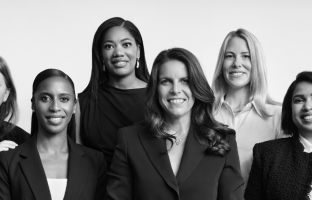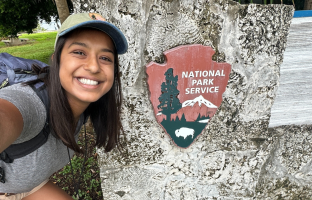As a child, Silvio Memme (MBA 2020) had a big dream – to one day design engines for Ferrari. While naysayers told him to be realistic, Memme took that advice to mean he would need to pour himself into this goal for it to become a reality. Fast forward to spring 2012 and Memme was packing his bags to move from Toronto, Canada to Maranello, Italy to join the Ferrari Product Development team and kick off his career in the automotive industry.
However, this is not a story about Memme’s career designing engines for some of the top automakers in the world. It’s a story about a career switcher who looked at a goal others said was impossible and found a way. And specifically, how Memme broke into Venture Capital from the automotive industry and launched a new stage of his career utilizing his unique perspective and transferable skills.
Navigating Back Home
Memme’s automotive career took him far from home, first to Italy and then to Michigan for five years with another 1.5-year detour back to Italy along the way. After seven years living outside of Canada, Memme knew it was time to come home to be near his family, which would also mean making a career change.
“I was living the consultant lifestyle for a really long time, five days a week in Detroit and then coming back to Toronto on the weekends and I just got exhausted,” Memme shared. “I needed to make a change because I was starting to lose motivation and felt out of balance. There aren’t as many opportunities in the auto industry in Toronto, so my thought was ‘let's see if I can add some tools to my toolkit and market myself better to other industries.’”
For Memme, the best way to way to make his way back home was one more stop in the United States – Boston, Massachusetts and Harvard Business School. At HBS, he believed he could broaden his skill set, build his network, and ultimately make a career pivot, but exactly what his next role would be was unclear. That was until Memme heard a talk by Doug Leone, partner at Sequoia Capital, and learned more about Venture Capital.
“I fell in love with the idea of working in VC,” Memme wrote in his article for Medium. “The ability to combine critical thinking skills, an understanding of what it takes to commercialize innovation, and my love of all things entrepreneurial convinced me I had a lot of value to add. More importantly, Leone’s description of the gritty, never-take-no-for-an-answer attitude resonated with me.”
As it turned out, Memme would hear a lot of “no” along the way, so the personality traits he shared with Leone would play a major role in his success.
Changing Gears Amid a Pandemic
Upon being accepted into the HBS class of 2020, Memme quickly dove into conversations with VCs to learn more about the industry and what it took to “break in.” As he recalled, the conversations often went like this:
“You want to work in VC but you didn't work in consulting, you didn't work in banking, you have no financial expertise, and you never worked at a startup? There's no chance you're ever going to work in this industry.”
Memme wasn’t deterred though. In fact, he took these conversations in stride. “It was a little frustrating, but I thought ‘Whatever that's fine I will not buy into the idea that because I didn’t work in these industries I don’t know anything,’ so I just kept plugging away,” he said.
His strategy, and a skillset he uses regularly in VC, was to continue networking. Memme heard “no” time and time again, but he kept knocking on doors and connecting with VC partners, including the partners at OMERS Ventures. Meanwhile, he saw an opportunity to strengthen his profile and built business development and startup experience through internships. Memme also continued crafting and reflecting on his Career Criteria, had regular check-ins with his Career Coach, Kristen Fitzpatrick, and honed his HBS case study skills to become more adept at analyzing companies. While it was tempting to broaden his geographic focus, Memme also remained committed to returning to Toronto and dedicated his time to networking with HBS alumni in the area.
By spring of his EC year, Memme was in conversations for several potential job offers but the COVID-19 pandemic changed everything. Quickly pivoting, Memme then went back to the partners at OMERS Ventures and made a proposal. “I reached back out to OMERS Ventures and told them if they needed help doing anything over the summer it would be a cool experience for me and could be valuable to them. With the HBS Summer Fellowship, it was no risk to them and I came in with zero expectations.”
OMERS Ventures agreed and Memme began a post-grad internship shortly after graduation. Six months later, when there were staffing changes on the team, Memme’s work was recognized and he was brought on full-time. He has now been on the investment team in Toronto for over a year.
Key Takeaways for Recruiting Partners
As a career switcher, Memme knew he needed to make the case for why he would add value in VC. His persistent attitude, work ethic, analytical mindset, and technical and industry experience were all part of his pitch, but ultimately Memme let his actions showcase his value add.
“I didn't sell myself because I’m not good at that,” said Memme. “Instead, I prefer to demonstrate my work ethic and was lucky to be able to do that with OMERS Ventures when they gave me a shot.”
For recruiters in VC seeking out candidates, Memme’s story is a prime example of how candidates with varied backgrounds can be an ideal match for your open roles when given the opportunity. Memme’s engineering background allows him to have fruitful conversations with technical founders, while the tenacity he showed in networking into VC pays dividends in helping him make new connections now.
Considering the needs of your firm, evaluate how different perspectives can contribute to growth and specifically think about opportunities to bring in interns. An internship for a career switcher seeking to transition into the field can be a value add for the student and your organization, and the experience can also translate to an extended interview where the candidate can prove what they are capable of.
This open-minded and proactive strategy will allow you to bring new team members like Memme to the table; people who will continue developing their skills, building connections, and not letting anything stop them from achieving their goals, and the goals of your firm.
As Memme notes, “We all have something to bring to the table — it’s just a matter of being able to demonstrate it and finding the people willing to listen. I have been fortunate enough to find some of those people along the way and wasn’t afraid to keep knocking on their door until they answered.”





.png&w=80&h=80)

